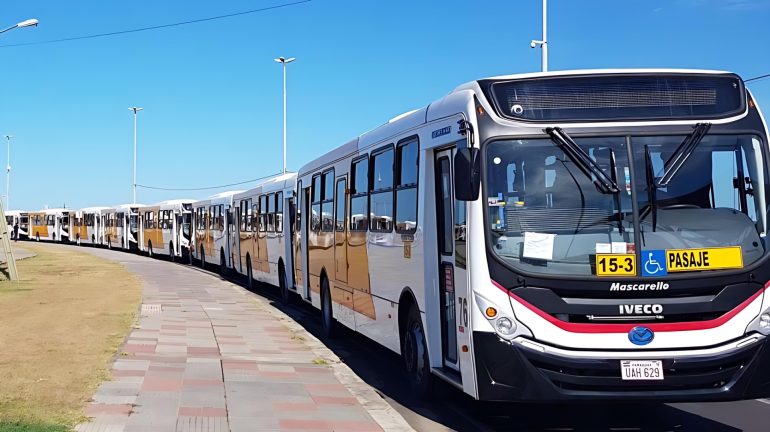The Paraguayan Senate has approved the transport reform of the metropolitan public transport system with modifications and has forwarded the project to the Chamber of Deputies for its final consideration. The proposal represents a comprehensive redesign of the service, with structural changes in the management of operations, fares and infrastructure.
A major proposed change is the implementation of an integrated fare that will allow passengers to combine several journeys with a single payment within a given period of time, reducing costs and waiting times. The initiative covers more than one hundred articles, including provisions on financial transparency, fare integration and fleet modernisation.
Main innovations within the public transport reform
One of the central pillars of the transport reform is the commitment to the traceability of information. The new framework seeks to ensure that users know how the resources allocated to public transport are utilised, including the acquisition of buses, the maintenance of infrastructure and the management of subsidies. This transparency aims to build trust between operators, authorities and citizens, strengthening public oversight of a service that directly affects daily life.
On the other hand, the proposal on technology and efficiency in the service introduces innovations that will transform the user experience. The implementation of an integrated fare will allow passengers to combine several journeys with a single payment within a given period of time. In addition, the system includes digital tools to monitor the location of buses and optimise routes, improving the predictability of urban transport.
Furthermore, one of the approved modifications establishes the implementation of a metropolitan public transport service plan that will guarantee coverage and availability of buses twenty-four hours a day, ensuring permanent accessibility and mobility for passengers.
Recognition of the service as essential
The transport reform introduces the recognition of public transport as an essential service. This ensures a minimum level of operations even in the event of strikes, with defined percentages for peak and non-peak hours. The measure protects the right to mobility for thousands of Paraguayans, guaranteeing access to work, education and health care.
The project also establishes safeguards for workers in the sector. Employment contracts will remain protected under the Labour Code, and provisions are incorporated to ensure continuity of employment in the event of changes of operators. In addition, the creation of a compensation fund financed by the concessionary companies is envisaged, providing greater stability in the protection of the rights of drivers and operational staff.
A more reliable and accessible service
With modern buses, monitoring technology and an integrated fare, users will have a more predictable, comfortable and efficient system. This will reduce long waiting times, improve daily mobility and lower transport costs.
Financial traceability will generate confidence and ensure that public resources are used responsibly. This progress places citizens at the centre of public oversight of a fundamental service.
The protection of working conditions and the compensation fund will ensure stability in the sector, preventing disputes that could affect service continuity and safeguarding acquired rights.
Notably, the recent expansion of the Búho night-bus network, with the launch of the Búho 3 line connecting Asunción and Ñemby from 5 September, operating overnight services via Lambaré, Fernando de la Mora, Villa Elisa and San Lorenzo, further exemplifies the reform’s ambition to improve mobility, especially during night and early-morning hours.
The transport reform marks a turning point for Paraguay. Its approval in the Senate opens the way toward a more transparent, modern and accessible system, with benefits both for users and for workers in the sector. The debate in the Chamber of Deputies will be the next stage in consolidating a transformation that promises to reshape urban mobility and accompany the country’s growth.


